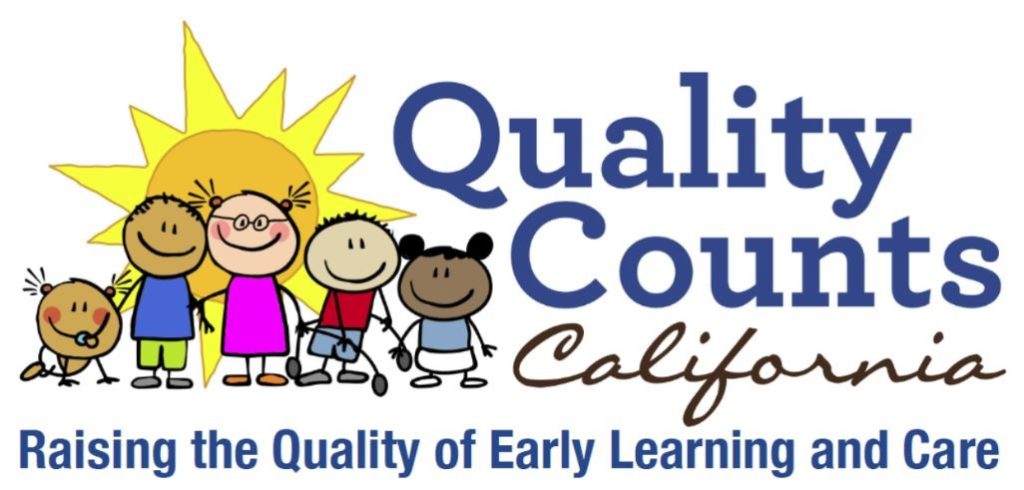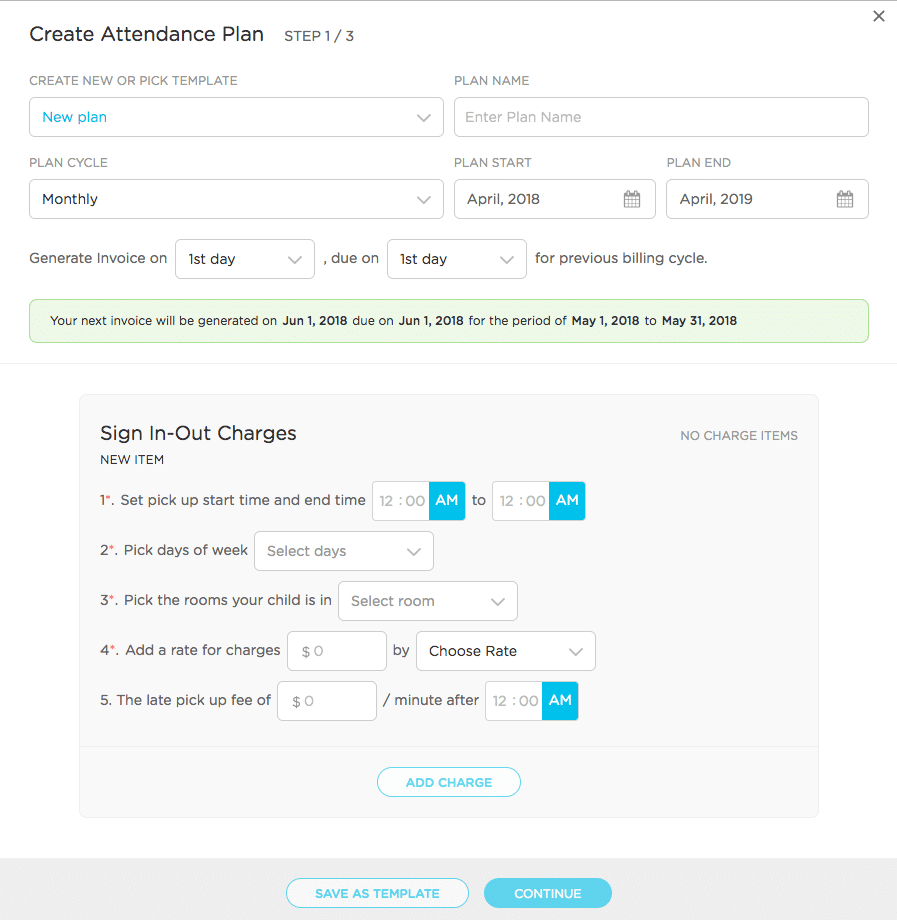
If you’re planning to start a child care operation in the state of California, you’ll need the appropriate type of child care license for your operation. California’s child care licensing process is designed to ensure that your child care business meets all required standards for health and safety.
Child care licensing in the Golden State is administered by the Child Care Licensing Division (CCLD) of the California Department of Social Services (CDSS). The CCLD provides oversight of child care centers in the state, helping to deliver child care orientation, inspections and other supports for child care operators.
In this go-to guide, we will describe the different types of child care licensing in California, and how to choose the right one for your business. Additionally, we will provide a walkthrough of the application process and connect you with all of the materials that you need to begin creating your business.
California Child Care Licensing Overview
If you are providing care for children from only one unrelated family, your business is legally exempt from California licensing requirements. However, if you provide care for children from multiple families, you will need a child care license – otherwise, you could face stiff fines and legal penalties.
California divides licensed child care into two major categories:
- Family Child Care Homes (FFCH)
- Child Care Centers (CCC)
FCCHs provide non-medical care and supervision and must be operated in the licensee’s own home. They are further subdivided into small and large homes, based on the size of the child care group and their ages. Large family child care homes may care for as many as 14 children, while small homes care for eight or fewer.
Small and large family child care homes have similar general requirements, but managing a large home requires at least one year of prior experience as a licensed care provider in a small FCCH or as an administrator, director or teacher in a licensed CCC.
CCCs are typically located in commercial buildings, and tend to have more stringent requirements than child care homes. These center-based care facilities provide quality care for children who range between infancy and school-age, and must operate for less than 24 hours each day.
Like other child care regulators, the State of California requires child care operations to maintain certain staff-to-child ratios based on the age composition of their child care group. California child care licensing and renewals are more costly for child care centers, and CCCs also face more comprehensive regulatory requirements designed to ensure child safety and quality of care within their facilities.
Once you know which type of care facility is appropriate for your plan, it is time to begin the application process. If you are still unsure of what license you should be applying for or you have other questions about the programs, consult with the CCLD’s local regional office.
Getting Your California Child Care License

Whether you’re applying for a license to operate an FCCH or a CCC, you’ll need to familiarize yourself with the California state laws and regulations for your type of child care operation. The relevant legislation is codified in California’s Health and Safety Code under Division 2. Licensing Provisions.
You’ll want to thoroughly review the following sections to get the best understanding of how these rules and regulations apply to your business:
- Chapter 3.35 Child Care Provider Registration
- Chapter 3.4 California Child Daycare Act
- Chapter 3.5 Daycare Centers
- Chapter 3.6 Family Daycare Homes
If you have questions about whether your proposed facility meets requirements, the Site Assessment Section (SAS) of the California Department of Public Health (CDPH) offers free and voluntary evaluations of your facility. They will be able to tell you if your care center meets the required standards, and connect you with necessary materials and best practices information to help you meet the state’s expectations.
In addition to state requirements, you need to be in compliance with municipal zoning bylaws. If you live in a fully residential area, there may be bylaw stipulations against operating a family child care home. Consult with your local guidelines.
The applications for FCCH and CCC licenses are fairly similar, but we will describe the process for each below.
Getting Your FCCH License in California
Step One: Attending a Child Care Licensing Orientation
To acquire a license to operate an FCCH in California, you will need to attend a child care licensing orientation, either online or in-person.
You can register for an online orientation through the CDSS website. After doing so, you’ll gain access to a digital orientation course that details the requirements for starting your home-based child care operation. To register for an in-person orientation, you’ll need to contact your regional CCLD office. Child care licensing orientations are available in both English and Spanish.
Step Two: Completing and Submitting Your Application Package
After you have completed your orientation, you will be required to submit your application package. Make sure that you properly sign and submit all of the required documentation, or there could be a delay in how long it takes for your application to be processed.
There are six required forms for the FCCH application:
- Application for a Family Child Care Home License (LIC 279)
- Current Children in Your Home (LIC 279B)
- Criminal Record Statements (LIC 508) for all adults living in the home
- Emergency Care and Disaster Plan (LIC 610A)
- Statement Acknowledging Requirement to Report Suspected Child Abuse (LIC 9108)
- Facility Sketch (LIC 999A)
These forms may be accessed in the Online Forms and Publications section of the CDSS website.
Additionally, you will need to include the following five supplemental documents with your application:
- Proof that you completed an orientation
- Proof of completion of or enrollment in Preventive Health Practices training
- Copies of TB clearances (not more than 1 year old) for all adults living in the home
- Proof of child care experience (if applying for a license for a large FCCH)
- A check or money order made payable to the DSS for the application fee
Step Three: Passing a Pre-licensing Inspection
Once your application has been submitted and approved, you will need to pass a pre-licensing inspection before you can start operating your family child care home. This inspection focuses on health and safety in the child care environment, as well as compliance with state licensing requirements.
The CDSS has provided a pre-inspection checklist that can help you ensure your home meets all necessary requirements. Failure to meet these requirements can result in the rejection of your child care application, so be sure to consult the checklist carefully and make the appropriate changes before scheduling your home visit.
After successfully passing your pre-licensing inspection, you will receive your California child care license.
Getting Your CCC License in California
Step One: Attending a Child Care Licensing Orientation
As an applicant for the CCC license in California, you must attend a child care licensing orientation, where you’ll receive important information about regulatory requirements and the application process. The orientation can be completed online or in-person through your regional CCLD office, in either English or Spanish. The online orientation registration can be found here.
Orientation fees are non-refundable, so be sure to familiarize yourself with California child care licensing laws and regulations and ensure that your facility can meet the required standards beforehand. After completing the orientation process, you will be eligible to submit an application for your child care center license.
Step Two: Completing and Submitting Your Application Package
After participating in an in-person or online orientation, you’ll need to complete and submit a licensing application package for your child care center. California’s child care licensing application requires 15 specific forms to be filled and submitted:
- Application For Child Care Center License (LIC 200A)
- Applicant Information (LIC 215)
- Criminal Record Statement (LIC 508)
- Designation Of Facility Responsibility (LIC 308)
- Administrative Organization (LIC 309)
- Monthly Operating Statements (LIC 401)
- Balance Sheet (LIC 403)
- Financial Information Release and Verification (LIC 404)
- Personnel Report (LIC 500)
- Personnel Record (LIC 501)
- Health Screening Report – Facility Personnel (LIC 503)
- Emergency Disaster Plan (LIC 610)
- Earthquake Preparedness Checklist (LIC 9148)
- Facility Sketch (LIC 999)
- Local Fire Inspection Authority Information (LIC 9054)
To access these forms, you can visit the Application Booklet for Child Care Centers on the CDSS website. You’ll find links to downloadable PDF versions of all required forms, detailed descriptions of each form and instructions for successfully completing your application.
In addition to the above listed forms, you’ll need to submit eight different types of supportive documents to finalize the application process:
- Partnership Agreement, Articles Of Incorporation or Articles Of Organization – whichever one applies to your center
- Verification of Administrator/Director Qualifications
- Job Descriptions for Each Position at Your Center
- Personnel Policies
- In-service Training for Staff
- Parent Handbook
- Schedule of Daily Activities
- Enrollment Agreement
To prevent processing delays, make sure that you’ve accurately completed and signed all required documents before submitting your application to your local CCLD office.
Quality Counts CA

The goal of Quality Counts CA (QCC) is to ensure children in California have access to high quality programs so that they thrive in their early learning settings and succeed in kindergarten and beyond. The Quality Counts CA (formerly CA-QRIS) Consortium strives to improve the quality of early learning with a focus in three areas of program quality: child development and readiness for school; teachers and teaching; and program and environment quality.
A rating for your program:
- Provides individualized feedback for potential areas of growth for your program.
- May include incentives and recognition for your level of quality.
- Provides families an additional tool to find the best environment for their child.
Once you sign up with your local Quality Rating and Improvement System (QRIS), if applicable:
- A trained and certified independent observer visits your early learning and care environment.
- The observer measures your programs using California standards of quality.
- Your program is then awarded a star rating for its continuous improvement.
Click here to learn more about this program.
Choose Procare Software to Power Your Child Care Business

After obtaining your California child care license, choosing Procare Solutions to power your business is the next step toward success. With more than 30 years of experience in the business of child care, Procare provides industry-leading tools and technologies for managing child care operations of all sizes.
With Procare’s child care management app, you’ll be able to:
- Automate child care billing and tuition payments, making the process more convenient for parents and helping ensure you get paid on time.
- Create and share lesson plans in compliance with state learning standards and monitor the progress of every child in your care.
- Leverage contactless check-in and check-out to enhance child and public safety during COVID-19.
- Communicate with parents through our parent engagement platform using either direct messaging or mass communications.
- And lots more…
Ready to find out how Procare has helped over 30,000 child care businesses save time, improve operational efficiency and build stronger customer relationships?
Request a Demo
Request a demo and talk with one of our friendly Procare experts to get a tailored child care solution for the unique needs of your business.



